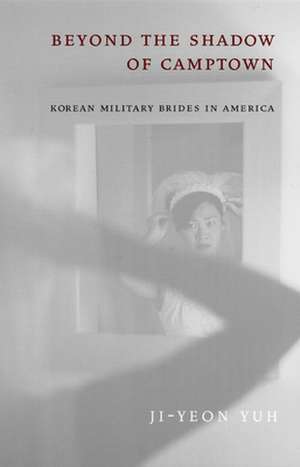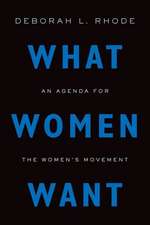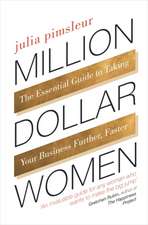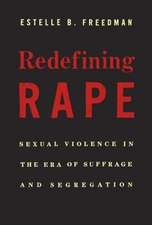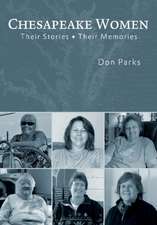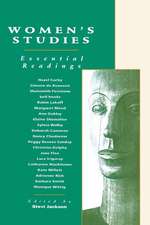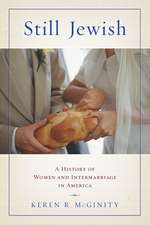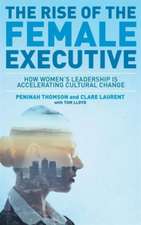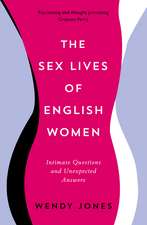Beyond the Shadow of Camptown – Korean Military Brides in America
Autor Ji–yeon Yuhen Limba Engleză Hardback – 30 iun 2002
| Toate formatele și edițiile | Preț | Express |
|---|---|---|
| Paperback (1) | 242.60 lei 6-8 săpt. | |
| MI – New York University – 31 mar 2004 | 242.60 lei 6-8 săpt. | |
| Hardback (1) | 527.94 lei 6-8 săpt. | |
| MI – New York University – 30 iun 2002 | 527.94 lei 6-8 săpt. |
Preț: 527.94 lei
Preț vechi: 685.64 lei
-23% Nou
Puncte Express: 792
Preț estimativ în valută:
101.03€ • 105.09$ • 83.41£
101.03€ • 105.09$ • 83.41£
Carte tipărită la comandă
Livrare economică 15-29 aprilie
Preluare comenzi: 021 569.72.76
Specificații
ISBN-13: 9780814796986
ISBN-10: 0814796982
Pagini: 283
Dimensiuni: 152 x 229 x 15 mm
Greutate: 0.56 kg
Ediția:New.
Editura: MI – New York University
ISBN-10: 0814796982
Pagini: 283
Dimensiuni: 152 x 229 x 15 mm
Greutate: 0.56 kg
Ediția:New.
Editura: MI – New York University
Recenzii
"Yuh has composed a complex, provocative, and compassionate portrayal of the experiences of Korean military brides from the 1950s through the 1990s. . . . Delving into how these women face isolation and alienation from both Korean and US societies because of their transnational status, Yuh's masterful history demonstrates that these women have resisted perceptions of both societies and forged communities based on their claiming Korean and US identities as Korean military brides. A wonderful resource... Highly recommended."<BR>—<I>Choice</I> "Ji-Yeon Yuh's book poignantly illustrates the human costs and benefits of militarized migration in the context of American-Korean relations."<BR>—<I>The Journal of Asian Studies</I> "Impeccably researched and seamlessly executed."<BR>—<I>Bitch Magazine</I> "IThis is one of the most compelling books I have read this year...Ji-Yeon Yuh's account is alternately heart breaking and inspiring."<BR>— <I>Comparative/World</I> "Ji-Yeon Yuh uses a wealth of sources, especially moving oral histories, to tell an important, at times heartbreaking, story of Korean military brides. She takes us beyond the stereotypes and reveals their roles within their families, communities, and Korean immigration to the U.S. Without ignoring their difficult lives, Yuh portrays these women's agency and dignity with skill and compassion."<BR>—K. Scott Wong, Williams College "Ji-Yeon Yuh's study is to be commended on several counts, not the least of which is the ‘unique prism’ (dust jacket) she gives the contemporary reader into the social and cultural contract between Korea and the United States, clearly a template that we would be advised to heed in these troubled times."<BR>— <I>The Journal of American History</I> "By studying the lives and history of Korean ‘military brides,’ Ji-Yeon Yuh pays tribute to an important group that has not received the understanding, attention, and respect that it deserves. Full of compelling stories, <B>Beyond the Shadow of the Camptowns</B> is sure to inspire new ways of thinking about U.S. and especially immigration history, as well as Asian American and Asian history."<BR>—Elaine Kim, University of California at Berkeley "Where do marriage, diaspora, racism and the politics of global alliances converge? In the dreams and dailiness of the thousands of Korean women living in the United States today. Ji-Yeon Yuh's engaging and revealing book shows us that by listening attentively to the Korean women married to white and black American men, we can become a lot smarter about the realities of globalized living."<BR>—Cynthia Enloe, author of <I>Maneuvers: the International Politics of Militarizing Women's Lives</I> "<I>Beyond the Shadoe of Camptown</I> is a readable and poignant piece of scholarship. There is much worth praising in this book."<BR>—Brandon Palmer, University of Hawaii at Manoa "In general, the fluid writing style demonstrates Yuh's background in journalism, and helps explain why this work made its way from dissertation to hardcover so rapidly. It is a study that demands attention from scholars of foreign relations and migration between Korea and the United States, and deserves attention from ethnic studies scholars and immigration scholars as well."—<I>Journal of American Ethnic History</I> "<B>Beyond the Shadow of Camptown: Korean Military Brides in America</B>, immigration historian Ji-Yeon Yuh explores how Korean women relate to American men in these cross-cultural relationships, and how the military link between the dominant U.S. and subservient Korea tends to complicate their marriages, already challenging for many other reasons, with a dose of international politics as well."<BR>—<I>Korean Quarterly</I> "Through compelling oral histories, she traces the lives of women form successive generations of brides."<BR>—<I>Chronicle of Higher Education</I>
"Yuh has composed a complex, provocative, and compassionate portrayal of the experiences of Korean military brides from the 1950s through the 1990s... Delving into how these women face isolation and alienation from both Korean and US societies because of their transnational status, Yuh's masterful history demonstrates that these women have resisted perceptions of both societies and forged communities based on their claiming Korean and US identities as Korean military brides. A wonderful resource... Highly recommended." --Choice "Ji-Yeon Yuh's book poignantly illustrates the human costs and benefits of militarized migration in the context of American-Korean relations." --The Journal of Asian Studies "Impeccably researched and seamlessly executed." --Bitch Magazine "IThis is one of the most compelling books I have read this year...Ji-Yeon Yuh's account is alternately heart breaking and inspiring." -- Comparative/World "Ji-Yeon Yuh uses a wealth of sources, especially moving oral histories, to tell an important, at times heartbreaking, story of Korean military brides. She takes us beyond the stereotypes and reveals their roles within their families, communities, and Korean immigration to the U.S. Without ignoring their difficult lives, Yuh portrays these women's agency and dignity with skill and compassion." --K. Scott Wong, Williams College "Ji-Yeon Yuh's study is to be commended on several counts, not the least of which is the 'unique prism' (dust jacket) she gives the contemporary reader into the social and cultural contract between Korea and the United States, clearly a template that we would be advised to heed in these troubled times." -- The Journal of American History "By studying the lives and history of Korean 'military brides,' Ji-Yeon Yuh pays tribute to an important group that has not received the understanding, attention, and respect that it deserves. Full of compelling stories, Beyond the Shadow of the Camptowns is sure to inspire new ways of thinking about U.S. and especially immigration history, as well as Asian American and Asian history." --Elaine Kim, University of California at Berkeley "Where do marriage, diaspora, racism and the politics of global alliances converge? In the dreams and dailiness of the thousands of Korean women living in the United States today. Ji-Yeon Yuh's engaging and revealing book shows us that by listening attentively to the Korean women married to white and black American men, we can become a lot smarter about the realities of globalized living." --Cynthia Enloe, author of Maneuvers: the International Politics of Militarizing Women's Lives "Beyond the Shadoe of Camptown is a readable and poignant piece of scholarship. There is much worth praising in this book." --Brandon Palmer, University of Hawaii at Manoa "In general, the fluid writing style demonstrates Yuh's background in journalism, and helps explain why this work made its way from dissertation to hardcover so rapidly. It is a study that demands attention from scholars of foreign relations and migration between Korea and the United States, and deserves attention from ethnic studies scholars and immigration scholars as well."--Journal of American Ethnic History "Beyond the Shadow of Camptown: Korean Military Brides in America, immigration historian Ji-Yeon Yuh explores how Korean women relate to American men in these cross-cultural relationships, and how the military link between the dominant U.S. and subservient Korea tends to complicate their marriages, already challenging for many other reasons, with a dose of international politics as well." --Korean Quarterly "Through compelling oral histories, she traces the lives of women form successive generations of brides." --Chronicle of Higher Education
"Yuh has composed a complex, provocative, and compassionate portrayal of the experiences of Korean military brides from the 1950s through the 1990s... Delving into how these women face isolation and alienation from both Korean and US societies because of their transnational status, Yuh's masterful history demonstrates that these women have resisted perceptions of both societies and forged communities based on their claiming Korean and US identities as Korean military brides. A wonderful resource... Highly recommended." --Choice "Ji-Yeon Yuh's book poignantly illustrates the human costs and benefits of militarized migration in the context of American-Korean relations." --The Journal of Asian Studies "Impeccably researched and seamlessly executed." --Bitch Magazine "IThis is one of the most compelling books I have read this year...Ji-Yeon Yuh's account is alternately heart breaking and inspiring." -- Comparative/World "Ji-Yeon Yuh uses a wealth of sources, especially moving oral histories, to tell an important, at times heartbreaking, story of Korean military brides. She takes us beyond the stereotypes and reveals their roles within their families, communities, and Korean immigration to the U.S. Without ignoring their difficult lives, Yuh portrays these women's agency and dignity with skill and compassion." --K. Scott Wong, Williams College "Ji-Yeon Yuh's study is to be commended on several counts, not the least of which is the 'unique prism' (dust jacket) she gives the contemporary reader into the social and cultural contract between Korea and the United States, clearly a template that we would be advised to heed in these troubled times." -- The Journal of American History "By studying the lives and history of Korean 'military brides,' Ji-Yeon Yuh pays tribute to an important group that has not received the understanding, attention, and respect that it deserves. Full of compelling stories, Beyond the Shadow of the Camptowns is sure to inspire new ways of thinking about U.S. and especially immigration history, as well as Asian American and Asian history." --Elaine Kim, University of California at Berkeley "Where do marriage, diaspora, racism and the politics of global alliances converge? In the dreams and dailiness of the thousands of Korean women living in the United States today. Ji-Yeon Yuh's engaging and revealing book shows us that by listening attentively to the Korean women married to white and black American men, we can become a lot smarter about the realities of globalized living." --Cynthia Enloe, author of Maneuvers: the International Politics of Militarizing Women's Lives "Beyond the Shadoe of Camptown is a readable and poignant piece of scholarship. There is much worth praising in this book." --Brandon Palmer, University of Hawaii at Manoa "In general, the fluid writing style demonstrates Yuh's background in journalism, and helps explain why this work made its way from dissertation to hardcover so rapidly. It is a study that demands attention from scholars of foreign relations and migration between Korea and the United States, and deserves attention from ethnic studies scholars and immigration scholars as well."--Journal of American Ethnic History "Beyond the Shadow of Camptown: Korean Military Brides in America, immigration historian Ji-Yeon Yuh explores how Korean women relate to American men in these cross-cultural relationships, and how the military link between the dominant U.S. and subservient Korea tends to complicate their marriages, already challenging for many other reasons, with a dose of international politics as well." --Korean Quarterly "Through compelling oral histories, she traces the lives of women form successive generations of brides." --Chronicle of Higher Education
